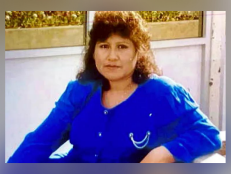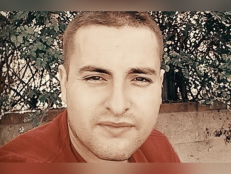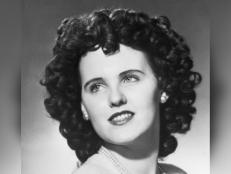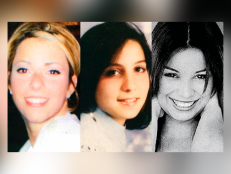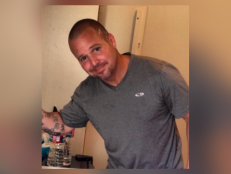Billionaire Boys Club: Money, Murder & a Missing Corpse in the 'Greed is Good' 1980s
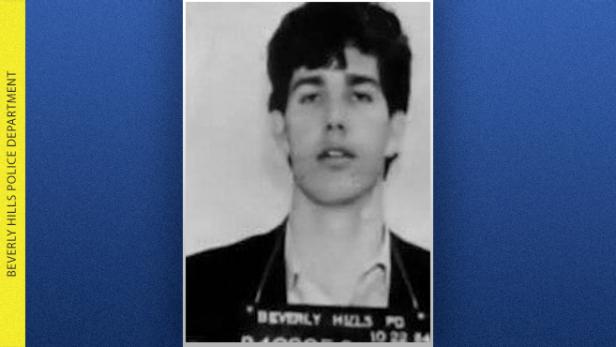
Beverly Hills Police Department
Joe Hunt
LOS ANGELES, CA — Exotic cars. Sharp suits. Upscale addresses. Such were the status symbols that motivated youthful hotshot Joe Hunt to create the Billionaire Boys Club (BBC), a cult-like social group and investment firm that combined the money machine of Wall Street with the glitz and glamour of Hollywood — if only on paper.
In fact, the Billionaire Boys Club was a massive Ponzi scheme, an intricate web of mega-bucks shell games and cons within cons taken to such extremes that it ultimately led to murder, more than once.
Although, given the absence of one key body in the case, some observers think perhaps even the homicide, too, was just another ruse.
Regardless, for Joe Hunt, the rise and fall of the BBC was a live-fast, kill-young expressway to a lifetime behind bars. And it all started in high school.
Born in 1960, Joe Hunt began life as Joseph Henry Gamsky, a hard-working kid from a middle-class family who achieved academic success early on and displayed powerfully focused ambition.
As a teen, Joe Gamsky won a scholarship to L.A.’s prestigious Harvard School for Boys (now known as the Harvard-Westlake School), where he felt out of place among the hyper-privileged sons of the Beverly Hills elite— kids for whom money was never an object and nothing seemed off-limits.
After dropping out of USC and getting suspended by the Chicago Mercantile Exchange for “unsound trading practices,” Gamsky returned to L.A. in 1981, reinventing himself as go-go deal-broker Joe Hunt, founder of BBC Consolidated of North American.
Hunt initially named the financial organization after Bombay Bicycle Club, his favorite local restaurant. In short order, though, that BBC would stand for the far more of-its-moment “Billionaire Boys Club.”
Newly bold and confidently charismatic, Hunt charmed his former Harvard School classmates. He claimed he made it through USC’s business program in two years by inventing a foolproof, top secret investment system and, naturally, he wanted to share the wealth with them — for the right buy-in price, of course.
Hunt focused the BBC’s investment efforts on alluring fields such as cutting-edge technology, high-tech machinery, and luxury automobile imports. It was the ’80s; who could resist?
The wealthy families Hunt grew up around funneled major cash into the BBC, funding phony subsidiaries with fancy names such as Microgenesis, Westcars, and Financial Futures and International Marketing.
In reality, though, all that money served only to create and prop up the illusion that the BBC was actually conducting any real business at all. Every cent that came in simply vanished.
Despite the BBC members’ Wilshire Boulevard condos, Rolls-Royce collections, and other flashy show-off materials, after two years of investing, backers were asking troublesome questions. Hunt, then, sought to find a fresh mark with deep enough pockets to keep the scam going (at least until he found the next mark). That’s when he met Ron Levin.
Ron Levin not only shared expensive tastes and an ostentatious manner with the BBC, he too was a straight-up fraud.
Their larcenous (and lethal) association began when Levin gave Hunt access to a $5 million account for commodities trading. The BBC immediately dove into the loot and split it up. Unfortunately, no actual loot existed. The BBC con artists got conned themselves.
Levin convinced an investment firm to make it look like he had $5 million to finance a documentary on Joe Hunt. While pretending to make the documentary, Levin used the bogus account to attract real money from other investors.
Hunt eventually caught on and came up with what seemed like a reasonable way of getting Levin to fork over what he owed — to be precise, the BBC would kill him and then steal whatever money he had.
According to Dean Karny — the BBC’s second-in-command who turned state’s evidence — Hunt and BBC security chief Jim Pittman forced Levin to sign over a $1.5 million check, then shot him in the head and ditched the body in a canyon.
Karny’s testimony, coupled with Hunt’s handwritten “To-Do” list regarding Levin’s murder that the cops found, led to life in prison for Hunt and a plea deal for Pittman. That’s no small achievement for the prosecution, as Ron Levin’s body was never found.
Speculation has long suggested that perhaps Levin’s death was just another con job, especially after several witnesses claimed to have spotted Levin in Greece and California throughout 1986 and ’87. But, another body definitely did surface, along with still more charges of murder.
At around the same time Hunt and Pittman murdered Levin, BBC member Reza Eslaminia was alleged to have offered up his Iranian millionaire father, Hedayat Eslaminia, as another potential source of ill-gained BBC income.
Dean Karny told the court that the group’s plan was to kidnap Hedayat and transport him while locked in a steamer trunk from San Francisco to a Los Angeles safe house where BBC members would torture him until he signed over his fortune to his son.
It might have worked, too, if Hedayat didn’t die while stuffed into the trunk during the journey. Three months later, authorities found the victim’s bones scattered in the wilderness, picked clean by coyotes.
In 1988, a jury convicted Reza and fellow BBC member Arben Dosti for Hedayat’s murder. Ten years later, however, those convictions were overturned and, in time, dismissed.
Joe Hunt, meanwhile, acted as his own attorney at a separate trial for masterminding the Hedayat Eslamninia plot. It resulted in a hung jury, 8-4, with the majority in favor of finding Hunt not guilty. To date, Joe Hunt remains the only defendant in California history to represent himself in a capital murder case and not get the death penalty. Some guys, apparently, have all the luck.
For more on the Billionaire Boys Club, watch the “Fatal Greed” episode of Investigation Discovery’s Behind Mansion Walls on ID GO now!
Recommended For You:
Watch Now:




